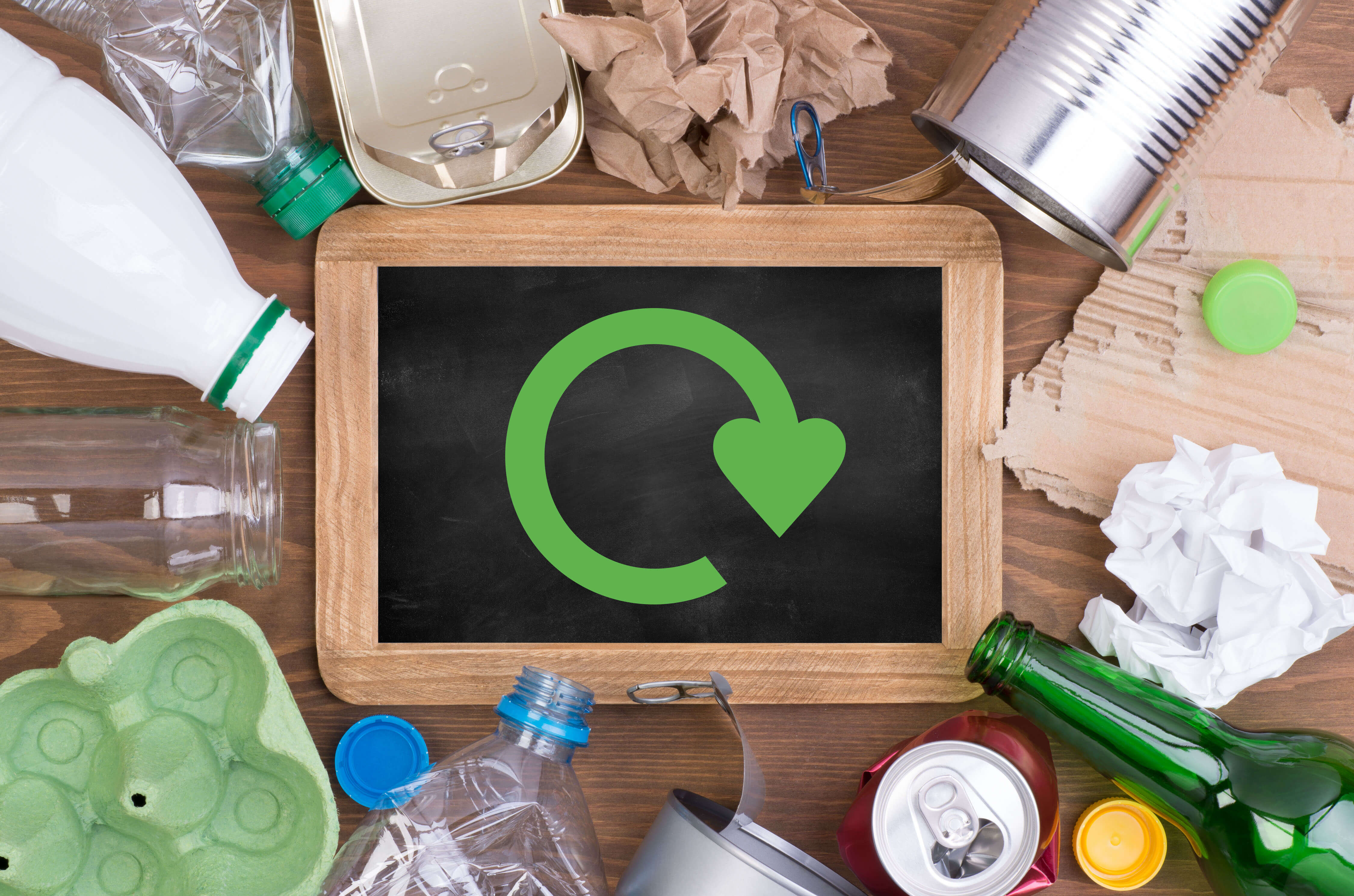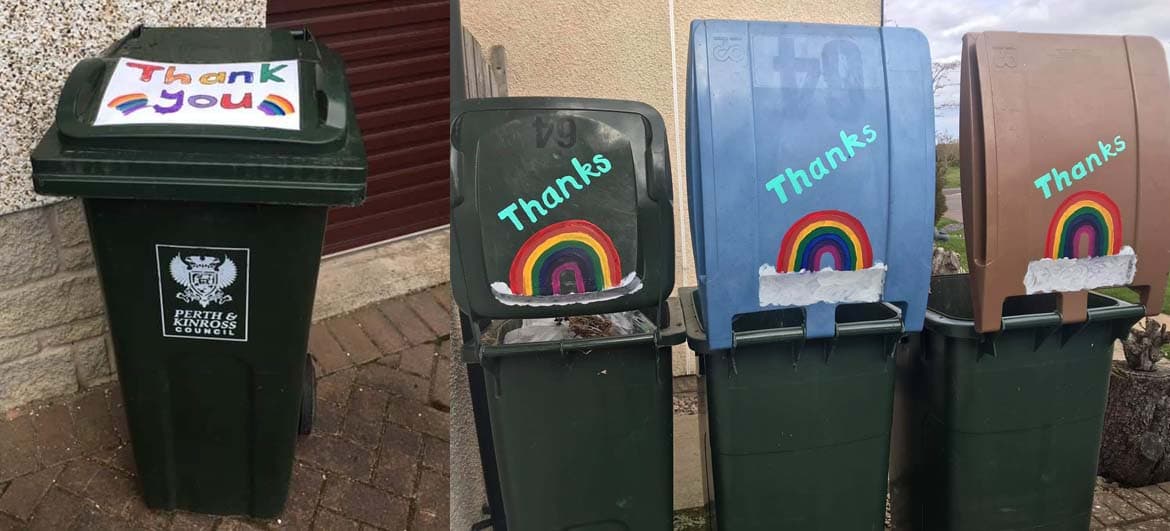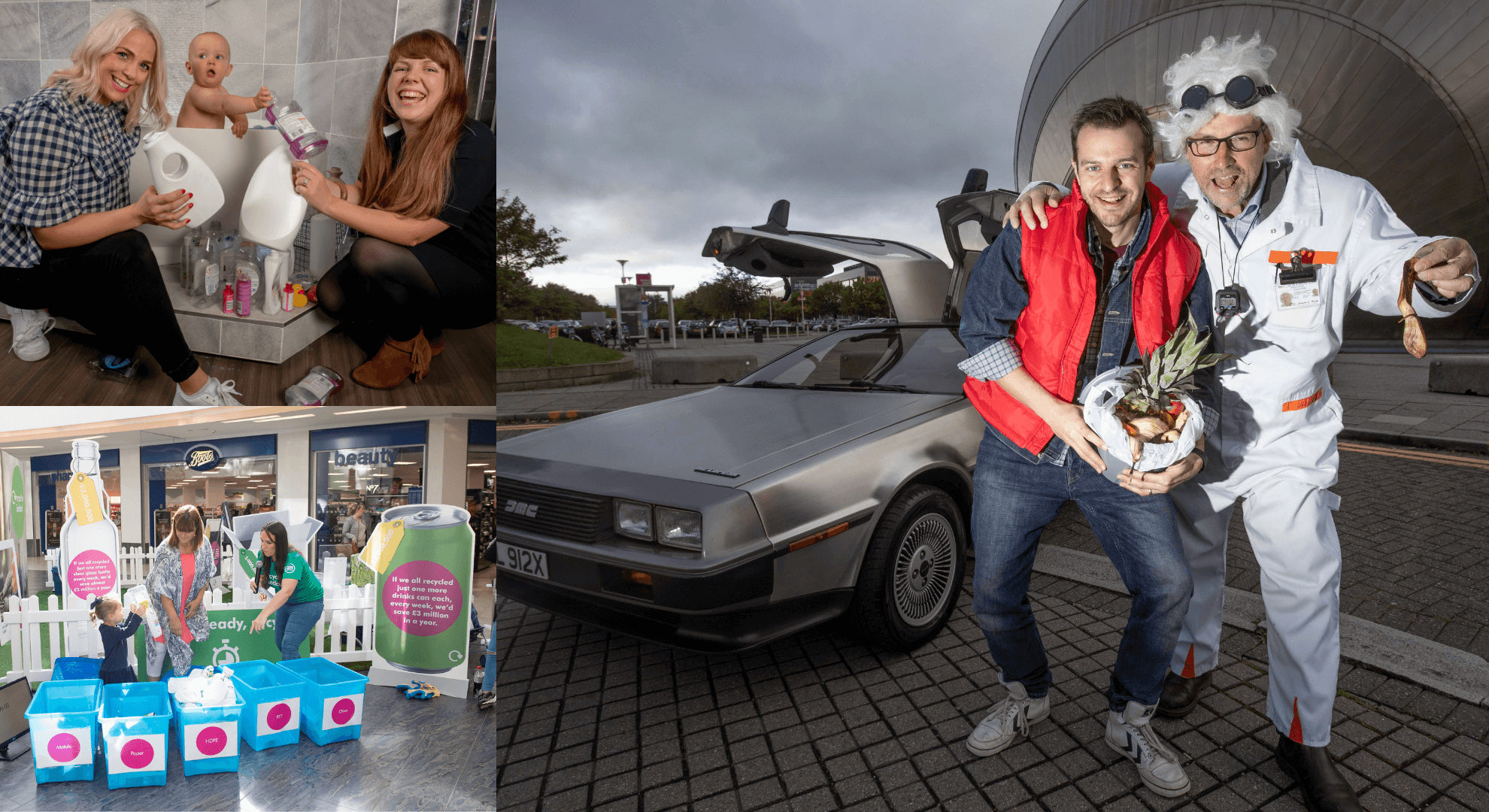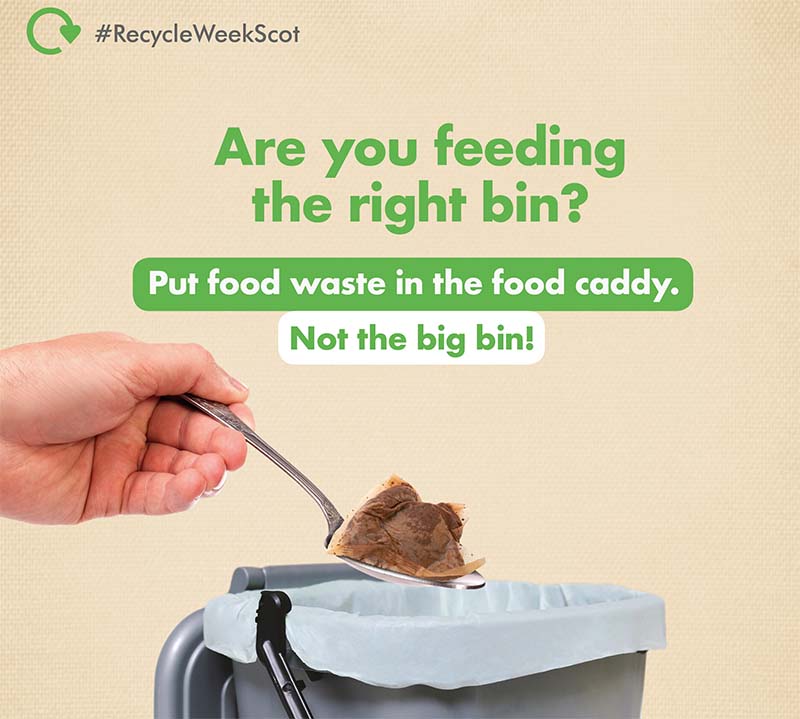
What is Recycle Week?
Recycle Week is Zero Waste Scotland’s annual event which celebrates recycling across Scotland.
Running from the 14th - 20th October 2024, it’s the one week of the year where businesses, schools, local authorities, public sector, waste management companies and many more come together to acknowledge the important role of recycling.
Our Recycle Week 2024 campaign ‘Don’t let it go to waste’ champions all the efforts we make to recycle in Scotland, whilst also making the point that we very often fall at the final hurdle – in terms of putting the right things in the right bins. It draws light to not letting our effort go to waste, including the items we recycle too.
Check out our Recycling Sorter tool.A digital recycling tool that allows you to search any Scottish local authority and find out what items can be recycled, and in which colour of bin – a one stop shop for recycling information.
Previous Recycle Week campaigns...
It's time to get recycling sorted: In 2023 with nightlife open once again, we used a doorwoman to guard the no entry policy - ‘no the night pal - we don’t just let anything in the general waste bin’ to help navigate recycling confusion around common household items.
Recycling Sorter: In 2021, Zero Waste Scotland launched the Recycling Sorter!
Thank you for recycling: in 2020 we showed our appreciation to all the keyworkers who worked throughout the pandemic as well as all those who continue to recycle and encouraging a week of positive action within our communities.

Waste Warriors: reinforcing the important role that everyone has in fighting the on-going waste battle by motivating action.
Take action on plastics: encouraging people to recycle more plastic bottles and food packaging to help keep this waste stream out of the sea and ground.

Food waste recycling: raising awareness of the importance of food waste recycling as Scotland works towards a target of reducing food waste by a third by 2025, to help combat the climate emergency.
The food waste in general household waste bins is taken to landfill, where it produces destructive greenhouse gases like methane, which is much more damaging to the environment than carbon dioxide and is helping to drive climate change.

